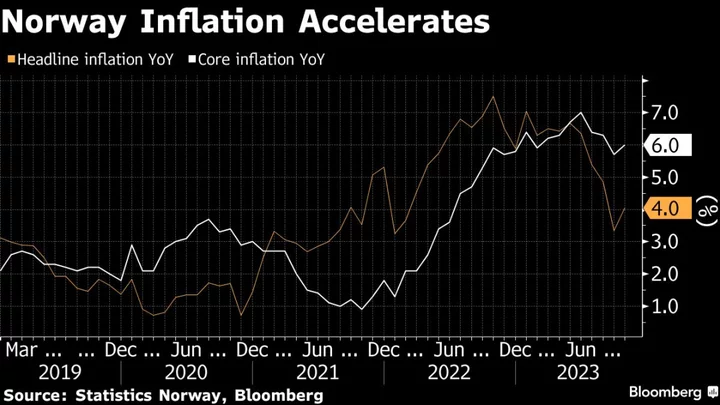Zambia’s official creditors and the International Monetary Fund expressed reservations about a deal in principle the government announced last month to restructure $3 billion in eurobonds, the Finance Ministry said. The nation’s bonds and currency plummeted.
The government and the bondholders’ steering committee are continuing discussions, the ministry said in a statement on Friday, without saying what their doubts are. The reservations are likely primarily related to the front-loaded amortization and initial coupon levels of Zambia’s proposed 2035 bond, said Samir Gadio, who covers African financial markets at Standard Chartered Bank.
Zambia’s $1.25 billion of bonds due 2027 were among the worst-performing in an index of emerging and frontier market sovereign credit monitored by Bloomberg. They fell 1.4% by 3:49 pm local, the most since Oct. 3., to 63.237 cents on the dollar. The kwacha currency slid 0.4% against the dollar to a record low 22.805.
The concerns of the IMF and official creditors — led by China and France — add to criticism by campaigners including UK-based Debt Justice that bondholders got too good a deal. Zambia already agreed to restructure $6.3 billion with official creditors.
Read More: Zambia Strikes Deal With Bondholders on $3 Billion Restructuring
The issues raised by the IMF and the official creditor committee may mean the government will need to negotiate greater relief from investors holding its dollar notes, and will probably take longer than anticipated to strike a deal. The government said last month it aimed to complete the deal by year-end.
Under the proposed deal, bondholders will receive about $550 million through 2025 in amortization payments and and upfront bonus, according to Brad Setser, senior fellow at the Council on Foreign Relations, in an Oct. 27 post to X, formerly Twitter.
The Washington-based lender’s resident representative to Zambia, Eric Lautier, didn’t immediately respond to an email requesting comment. Zambia’s Finance Ministry declined further comment.
Zambia’s official creditors agreed to a 40% reduction in the present value of their debt. Debt Justice calculates the reduction under the bondholders’ accord is 33%.
Bondholders will be repaid a third more than government creditors including China and the UK under the restructuring deal agreed with Zambia, even though they lent at higher interest rates initially, Debt Justice and the Zambian Civil Society Debt Alliance, a local coalition of campaigners, said in a statement on Friday.
Under the deal, bondholders will effectively be repaid 73 cents for every $1 lent originally, according to Debt Justice’s analysis. Government creditors will effectively be repaid 55 cents for every $1, it said.
Zambia is using the Group of 20’s Common Framework mechanism to restructure its debt, after it became Africa’s first pandemic-era defaulter in 2020.
The disparity of treatment between private and government creditors highlights that the deal doesn’t meet the requirements of the G20 Common Framework, which requires private creditors to give “at least as favorable” restructuring terms as government lenders, Debt Justice said.
--With assistance from Colleen Goko.
(Updates with bonds price and currency drop in the third paragraph.)









